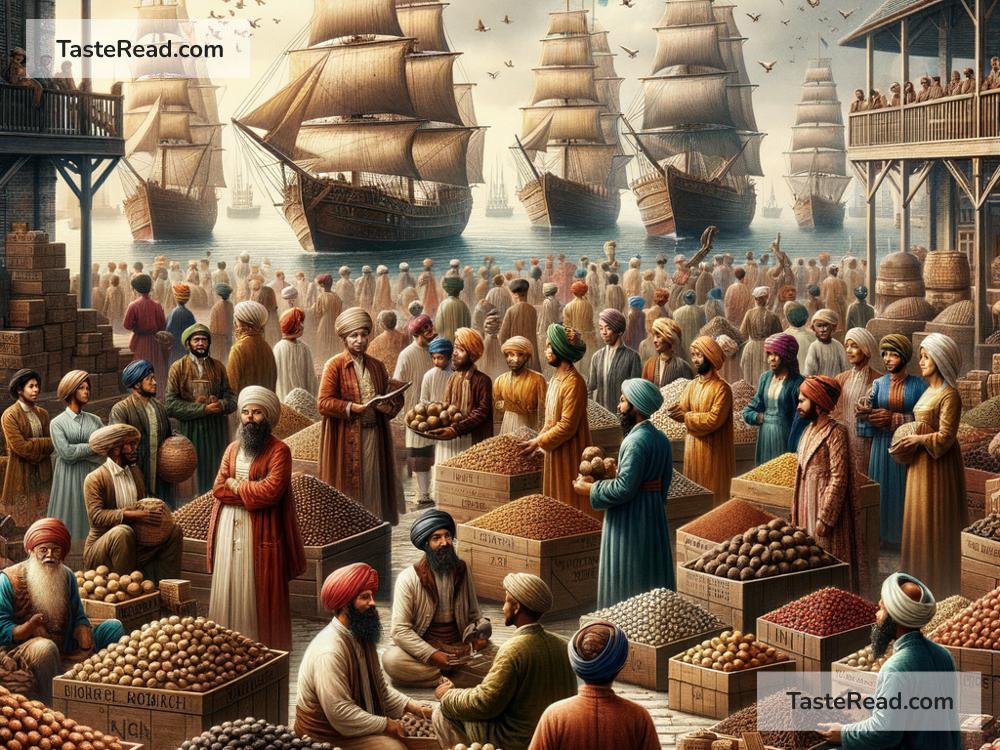The Curious History of Nutmeg in Colonial Trade Wars
Nutmeg is a spice that many of us take for granted today, adding warmth and flavor to cakes, cookies, and even drinks like eggnog. But in the past, nutmeg was not just a cooking ingredient—it was a symbol of power, wealth, and bloodshed. This tiny spice, made from the seed of a tree, played a big role in shaping global history during the colonial era.
Let’s dive into the fascinating story of nutmeg and how it fueled trade wars between European powers and impacted nations around the world.
The Magical Spice That Everyone Wanted
Nutmeg comes from the nutmeg tree (Myristica fragrans), which is native to the Banda Islands, a small group of islands in Indonesia. For centuries, the people in this region were the only ones who could grow and harvest nutmeg. They understood its value and traded it with other Southeast Asian nations.
What made nutmeg so special? In medieval Europe, nutmeg was believed to have incredible powers. People thought it could cure diseases, protect against the plague, fight bad odors, and boost overall health. Plus, it added a unique taste to meals. At a time when life was hard and sickness common, Europeans were willing to pay huge amounts of money for nutmeg.
By the 1400s and 1500s, European explorers began sailing across the oceans to find new lands, goods, and trading opportunities. When they learned that nutmeg was grown only in the Banda Islands, their eyes lit up with greed. Whoever controlled nutmeg would control an important trade—and make a fortune.
The First Colonizers: The Portuguese
The Portuguese were the first European nation to reach the Spice Islands (which included the Banda Islands) in the 1500s. They established a foothold in the region and began exporting nutmeg back to Europe. However, their control of the spice trade did not last long. Soon, other European countries, like the Dutch and the English, began competing for power in this valuable region.
The Dutch Take Over
In the early 1600s, the Dutch set up the Dutch East India Company (VOC), one of the world’s first multinational corporations. Their goal was clear: to dominate the spice trade, especially nutmeg. The Dutch realized that if they could monopolize nutmeg production, they could control prices and profits.
The Banda Islands became the center of Dutch focus. However, the local Bandanese people resisted Dutch colonization. They wanted to continue trading nutmeg with other nations, such as the English, for fair prices. Unfortunately, this resistance turned into tragedy.
The Dutch launched attacks on the Banda Islands to force the Bandanese to submit. In the early 1620s, they carried out aggressive campaigns to take full control of nutmeg production. Thousands of Bandanese were killed, enslaved, or displaced, and the Dutch planted nutmeg trees under their strict control. The islands were turned into plantations run by Dutch merchants and workers.
The English Fight Back
Although the Dutch gained control of the Banda Islands, they had competition from the English. The English East India Company, similar to the Dutch VOC, was eager to stake its claim on the spice trade. This rivalry led to decades of conflict, both in Southeast Asia and within Europe.
One of the strangest episodes of this competition happened in 1667. The Dutch and English agreed to end some of their fighting through the Treaty of Breda. This treaty allowed the Dutch to keep the Banda Islands and their nutmeg monopoly. In exchange, the English were given control of a tiny colony called New Amsterdam in North America.
If New Amsterdam doesn’t sound familiar, that’s because its name was later changed to New York City! Yes, New York was part of an unusual trade deal involving nutmeg.
Smuggling and Other Secrets
Even though the Dutch tried to tightly control nutmeg, they couldn’t stop smugglers. English traders often smuggled nutmeg seeds to other countries, helping spread the spice’s cultivation. Eventually, nutmeg trees were planted in places like India, Sri Lanka, and the Caribbean.
By the 18th and 19th centuries, nutmeg’s exclusivity had diminished. It was grown in various parts of the world, and competition lowered its price. While still valuable, nutmeg lost its status as a spice worth fighting wars over.
The Legacy of Nutmeg
Today, nutmeg is simply a spice. We sprinkle it on desserts, grate it into sauces, and enjoy its warm aroma. Hardly anyone thinks about the colonial violence or global struggles tied to this humble seed.
But the history of nutmeg reminds us of how trade has shaped the world. Spices like nutmeg were once a driving force behind exploration, exploitation, and expansion. They show how small, everyday items can have a big impact on politics, economics, and human lives.
Next time you use nutmeg, pause for a moment to remember its curious journey—a journey filled with greed, power, and injustice. From the Banda Islands to your kitchen, nutmeg’s story is one of human ambition and the price of desire.
Nutmeg’s history serves as a reminder of the world-changing power of trade and the connections between nations. Even today, the remnants of colonialism continue to influence global politics and economics. What new lessons can the past teach us?


